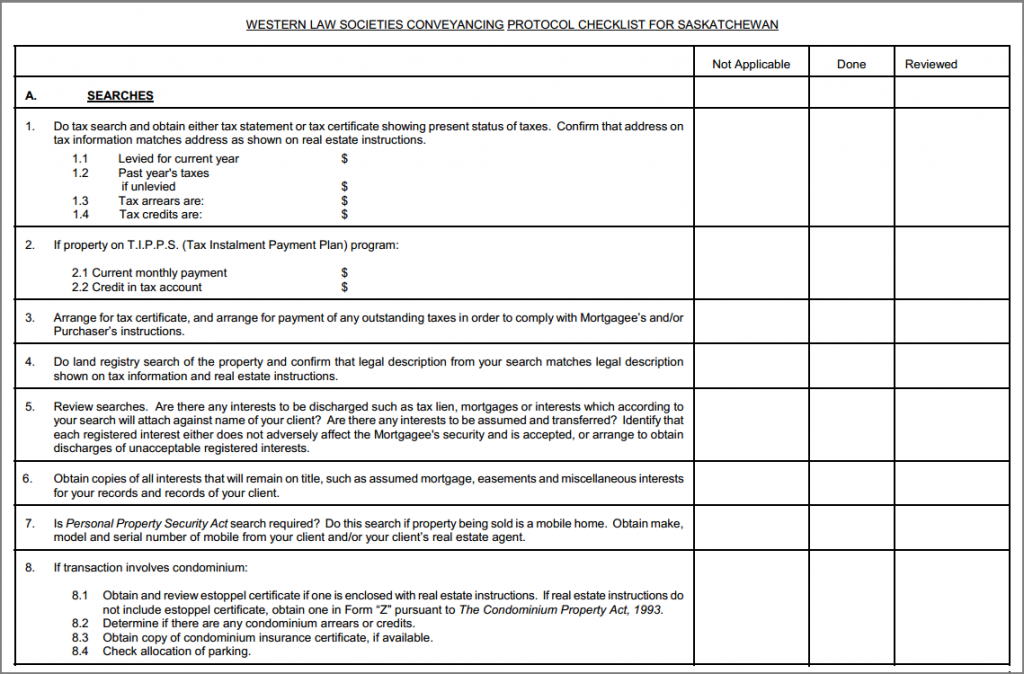Often people think of checklists as short, uncomplicated forms. I found a lengthy exception in the field of real estate law in Canada.
The Western Conveyancing Protocol created a standard form for solicitor opinions related to certain real estate transactions in Manitoba, Saskatchewan, Alberta, and British Columbia. The law society in each provide developed a guide for lawyers in that province that would among other things:
- Provide lenders with a standardize form for the solicitor’s opinion
- Allow the release of mortgage funds on the date of closing
- Encourage due diligence by purchasers
As part of its work, the Law Society of Saskatchewan developed a protocol checklist (2-page PDF) based on the requirements of the protocol. The image below is a portion of that check list; click the image to view the entire checklist (a PDF on the Law Society’s website).
Who uses this job aid?
Solicitors (lawyers) working on certain real estate transactions (mainly transfers or refinancings for existing residential properties).
What’s this job aid for?
As the Law Society of Manitoba says, each society’s protocol is a “practice guide” to help produce a solicitor’s opinion. To greatly oversimplify (I am not a solicitor, I don’t live in either Saskatchewan or Manitoba), the opinion is formal notice to the lender from the lawyer saying that the he or she has followed the protocol and and that the mortgage can be funded and the funds disbursed.
In other words, it’s a highly specialized job aid intended for a limited number of practitioners in specific situations.
The Saskatchewan checklist has multiple sections:
- Searches (e.g., for tax statements or legal property descriptions) – 15 items
- Preparing documents for purchaser – 10 items
- Insurance
- Trust conditions
- Document submission – 9 items
- Certification of compliance by the solicitor
One small feature I like is that each item on the checklist has a box for “not applicable” as well as one for “done” and “reviewed.”
A “not applicable” box reminds the person using the checklist to consider whether the item applies, and to confirm when it does not.

